Natural Weight Loss Supplements: Do They Really Support a Healthier You?

Are you on a quest for weight loss solutions that feel more natural and less like a chore? You’re not alone. Many people are turning to natural weight loss supplements, seeking an easier way to shed those stubborn pounds while promoting overall health. With so many options available, it’s easy to get lost in the world of herbal extracts, vitamins, and minerals claiming to help you reach your fitness goals. But do these products truly deliver on their promises? Are Ginger Slim Ingredients as effective as they claim?
As we explore the landscape of natural weight loss supplements together, we’ll dive into what makes them tick and how they might fit into your journey toward a healthier you. Whether you’re just starting out or looking for that extra edge, understanding these supplements can pave the way for informed choices that align with your lifestyle. Let’s uncover the truth behind nature’s offerings in the realm of weight management.
Popular Natural Weight Loss Supplements

When it comes to natural weight loss supplements, several options have gained popularity. Green tea extract is one of the most well-known choices. Packed with antioxidants, it may help boost metabolism and support fat burning. Garcinia cambogia has also caught attention for its potential appetite-suppressing properties. This tropical fruit extract might aid those looking to reduce their caloric intake without feeling deprived. Another popular supplement is conjugated linoleic acid (CLA). Some studies suggest that CLA can promote fat loss while preserving muscle mass, making it appealing to anyone who wants a toned appearance.
The Science Behind Natural Weight Loss
Natural weight loss supplements are often lauded for their ability to assist with shedding pounds, but what does the science say? Many of these products contain ingredients like green tea extract, garcinia cambogia, or glucomannan. Each has been researched for its potential effects on metabolism and appetite regulation. Green tea extract is rich in catechins that may boost fat oxidation. Garcinia cambogia works by inhibiting an enzyme involved in fat storage, making it harder for your body to create new fat cells. Meanwhile, glucomannan expands in the stomach and promotes feelings of fullness.
Benefits of Using Natural Weight Loss Supplements

Natural weight loss supplements offer a variety of benefits that can enhance your fitness journey. Many people find these products an excellent addition to their routine, as they often contain ingredients derived from plants and herbs. One primary advantage is their potential to boost metabolism. This can lead to increased calorie burning, helping you shed those stubborn pounds more effectively. Ingredients like green tea extract are renowned for this property. Another benefit is appetite suppression. Certain natural supplements can help control cravings, making it easier to stick to a healthy diet plan. Reduced snacking means fewer empty calories consumed throughout the day.
Risks and Side Effects to Consider
Natural weight loss supplements may seem like a safe option, but they come with their own set of risks and side effects. Some ingredients can interact negatively with medications or exacerbate existing health conditions. For instance, stimulants like caffeine might lead to increased heart rate or anxiety in sensitive individuals. It’s essential to pay attention to how your body reacts after taking these products. Gastrointestinal issues are also common complaints. Ingredients such as fiber and certain herbal extracts can cause bloating, gas, or diarrhea for some users. Allergic reactions shouldn’t be overlooked either. Natural doesn’t always mean hypoallergenic; always check ingredient lists carefully.
How to Choose the Right Supplement for You

Selecting the right weight loss supplement can feel overwhelming. Start by assessing your specific goals. Are you aiming for appetite control, boosted metabolism, or increased energy? Next, research ingredients thoroughly. Natural doesn’t always mean safe. Look for supplements with scientifically backed components like green tea extract or Garcinia Cambogia. Consult healthcare professionals before diving in. They can offer tailored advice based on your health history and any current medications. Pay attention to product reviews and testimonials as well. These insights from actual users can reveal potential benefits or hidden drawbacks.
Finding the right balance in your weight loss journey can be challenging. Natural weight loss supplements offer a potential pathway to enhance your efforts, but they should not be seen as a magic bullet. It’s essential to combine these supplements with healthy eating habits and regular physical activity. Not all supplements are created equal, so taking time to research and choose wisely is crucial. Look for products backed by scientific evidence and consult healthcare professionals if needed. Your health should always come first.…








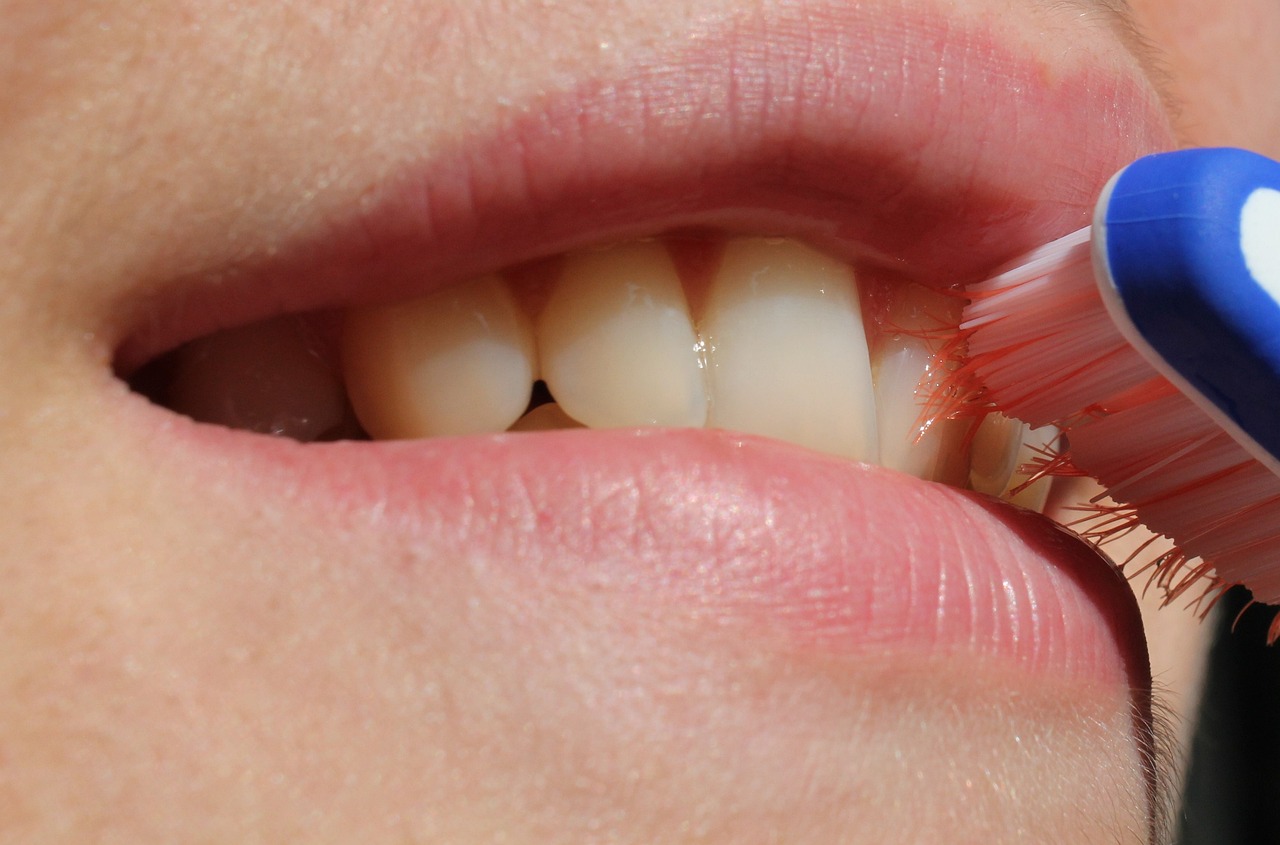
 The first step in dealing with a dental emergency is to assess the situation. Take a moment to evaluate the severity of your condition. Are you experiencing intense pain, swelling, or bleeding? Is there visible damage to your teeth or mouth? If you have knocked out a tooth or broken a significant part of it, this may require immediate attention from a dentist. On the other hand, minor issues like food stuck between teeth can often be resolved at home.
The first step in dealing with a dental emergency is to assess the situation. Take a moment to evaluate the severity of your condition. Are you experiencing intense pain, swelling, or bleeding? Is there visible damage to your teeth or mouth? If you have knocked out a tooth or broken a significant part of it, this may require immediate attention from a dentist. On the other hand, minor issues like food stuck between teeth can often be resolved at home.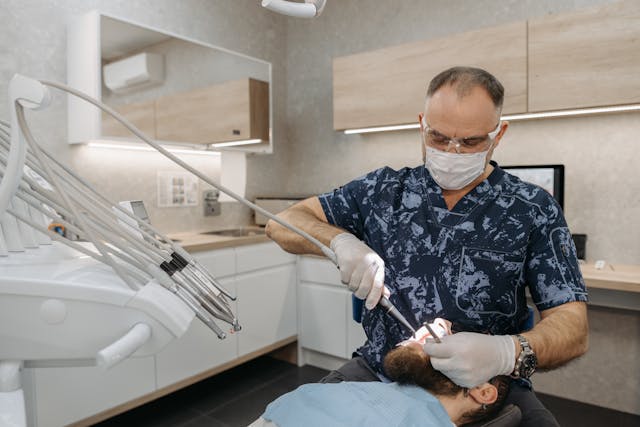
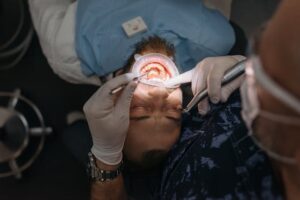 When it comes to dental emergencies, controlling bleeding is crucial. This can happen due to trauma, tooth extraction, or other dental procedures. The first step is to remain calm and apply gentle pressure to the affected area with a clean gauze or cloth. Avoid using tissues, as they can leave behind fibers that may irritate the wound.
When it comes to dental emergencies, controlling bleeding is crucial. This can happen due to trauma, tooth extraction, or other dental procedures. The first step is to remain calm and apply gentle pressure to the affected area with a clean gauze or cloth. Avoid using tissues, as they can leave behind fibers that may irritate the wound.




 Fortunately, many golf injuries can be prevented with proper preparation and technique. Here are some tips to help you stay injury-free on the golf course:
Fortunately, many golf injuries can be prevented with proper preparation and technique. Here are some tips to help you stay injury-free on the golf course:
 Dark chocolate is an indulgent treat that can also benefit your brain health. This delicious superfood contains flavonoids, which are antioxidant compounds shown to improve cognitive abilities and protect against age-related decline.
Dark chocolate is an indulgent treat that can also benefit your brain health. This delicious superfood contains flavonoids, which are antioxidant compounds shown to improve cognitive abilities and protect against age-related decline.
 Lastly, salmon also offers a great source of protein. Eating this fish can help regulate blood sugar levels leading to better mental health and focus throughout the day. Additionally, eating salmon may reduce inflammation in the body due to its anti-inflammatory properties. Chronic inflammation has been linked with several neurological conditions like Alzheimer’s disease and Parkinson’s disease, among others.
Lastly, salmon also offers a great source of protein. Eating this fish can help regulate blood sugar levels leading to better mental health and focus throughout the day. Additionally, eating salmon may reduce inflammation in the body due to its anti-inflammatory properties. Chronic inflammation has been linked with several neurological conditions like Alzheimer’s disease and Parkinson’s disease, among others.


 There are also various levels of THC in CBD gummies. Some products have no THC, while others contain up to 30% THC. If you’re looking for a product that will not get you high, it’s important to read the label and understand how much THC is contained in the product. The next thing you’ll want to consider is dosage. CBD gummies come in various dosages like 100mg, 500mg, and 1000mg. There’s no “one size fits all” dosage for CBD oil. You should always consult a doctor or research online to find the best dosage that works for you and your symptoms.
There are also various levels of THC in CBD gummies. Some products have no THC, while others contain up to 30% THC. If you’re looking for a product that will not get you high, it’s important to read the label and understand how much THC is contained in the product. The next thing you’ll want to consider is dosage. CBD gummies come in various dosages like 100mg, 500mg, and 1000mg. There’s no “one size fits all” dosage for CBD oil. You should always consult a doctor or research online to find the best dosage that works for you and your symptoms. Finding reputable companies is another important factor when shopping for CBD gummies. Always do your research to ensure the company you’re buying from is reputable and has good customer service. You can read reviews online to get an idea of what others have had to say about their experience with the company.
Finding reputable companies is another important factor when shopping for CBD gummies. Always do your research to ensure the company you’re buying from is reputable and has good customer service. You can read reviews online to get an idea of what others have had to say about their experience with the company.
 Obesity has become a global threat, looming from a distance. The World Health Organization (WHO) has declared that obesity is a global epidemic. It’s estimated that more than one billion people in the world are overweight or obese, and this number continues to rise each year. Overweight rates have doubled globally since the 1980s, while malnutrition still remains a significant issue around the globe.
Obesity has become a global threat, looming from a distance. The World Health Organization (WHO) has declared that obesity is a global epidemic. It’s estimated that more than one billion people in the world are overweight or obese, and this number continues to rise each year. Overweight rates have doubled globally since the 1980s, while malnutrition still remains a significant issue around the globe.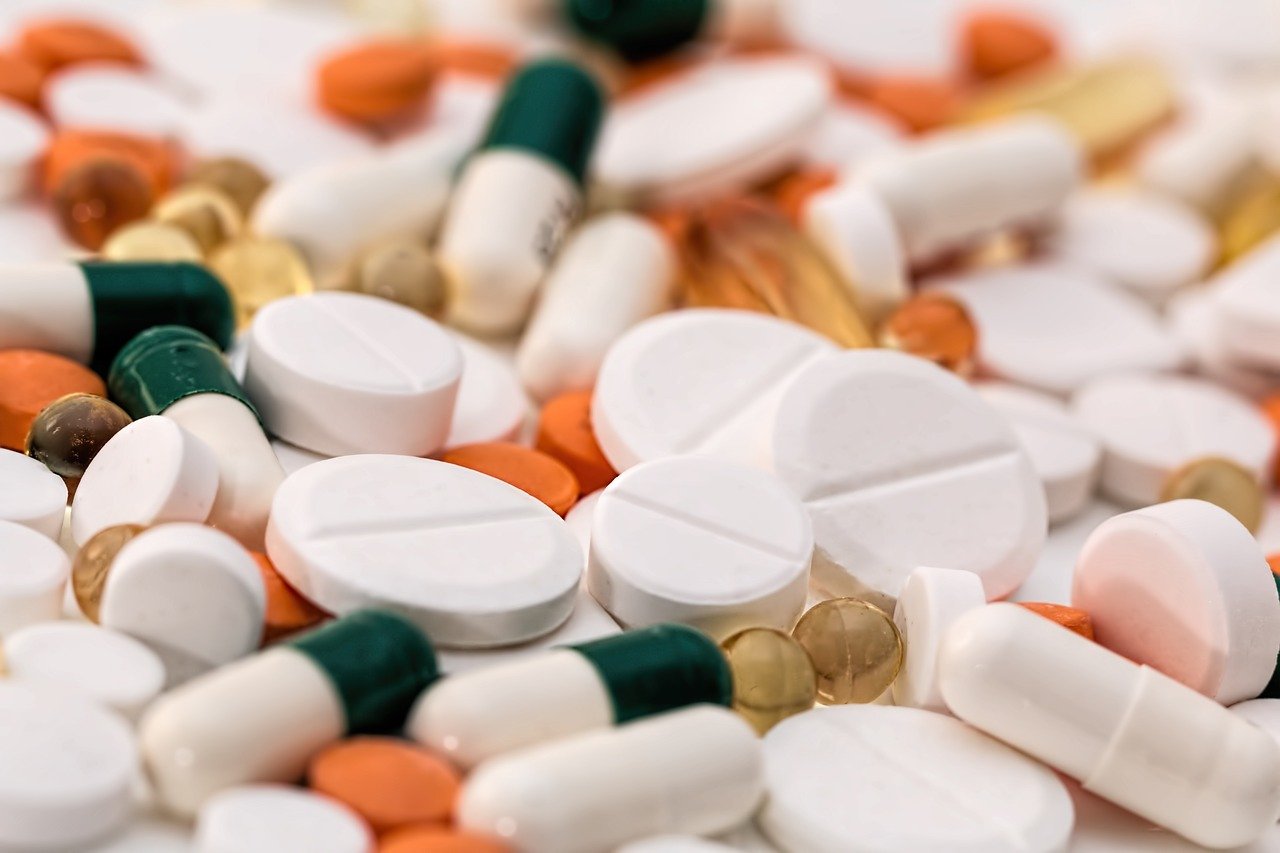
 One of the most important ways to improve physical health is by stimulating cell growth. A study carried out in 2008 showed that an increased concentration of certain fats known as phospholipids was found in people who regularly used lysergic acid diethylamide, which could be responsible for triggering cell growth. The drug also helps to produce the hormone serotonin, which is known as one of the most critical chemicals in controlling mood and sleep patterns within your body. Another study in 2007 proved that the drug could be used to treat end-stage cancer patients, and it has been known to help people suffering from severe anxiety and depression. However, whether these benefits outweigh the risk of consuming a potentially harmful substance is difficult to assess within such studies.
One of the most important ways to improve physical health is by stimulating cell growth. A study carried out in 2008 showed that an increased concentration of certain fats known as phospholipids was found in people who regularly used lysergic acid diethylamide, which could be responsible for triggering cell growth. The drug also helps to produce the hormone serotonin, which is known as one of the most critical chemicals in controlling mood and sleep patterns within your body. Another study in 2007 proved that the drug could be used to treat end-stage cancer patients, and it has been known to help people suffering from severe anxiety and depression. However, whether these benefits outweigh the risk of consuming a potentially harmful substance is difficult to assess within such studies.
 A longer
A longer 
 The second important factor that will be essential in guiding you to make the right choice is money. As many people will agree, getting good health care can be relatively expensive depending on the country you live in. Most chiropractic clinics tend to charge for the health services they provide, and it will make sense to consider the amount of money you are comfortable paying.
The second important factor that will be essential in guiding you to make the right choice is money. As many people will agree, getting good health care can be relatively expensive depending on the country you live in. Most chiropractic clinics tend to charge for the health services they provide, and it will make sense to consider the amount of money you are comfortable paying.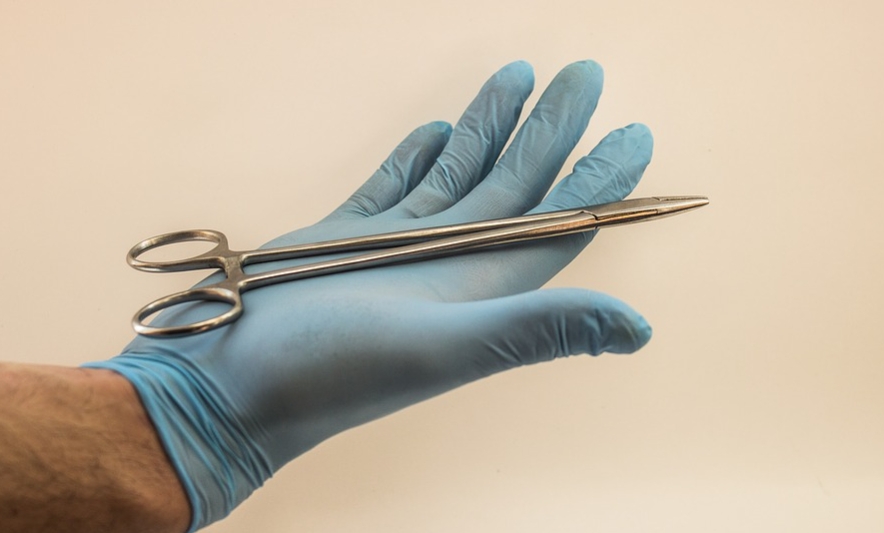
 A surgeon is a medical professional who must be licensed. The doctor has the ability to improve and save lives. However, if they make a huge mistake, the result can be fatal. Therefore, make sure you choose a doctor who has proper certifications and licenses. This explains why you should get your surgery done in reliable hospitals. Reputable hospitals only hire licensed doctors. Remember that training is continuous. Other than practice, a surgeon should learn to use new equipment.
A surgeon is a medical professional who must be licensed. The doctor has the ability to improve and save lives. However, if they make a huge mistake, the result can be fatal. Therefore, make sure you choose a doctor who has proper certifications and licenses. This explains why you should get your surgery done in reliable hospitals. Reputable hospitals only hire licensed doctors. Remember that training is continuous. Other than practice, a surgeon should learn to use new equipment.
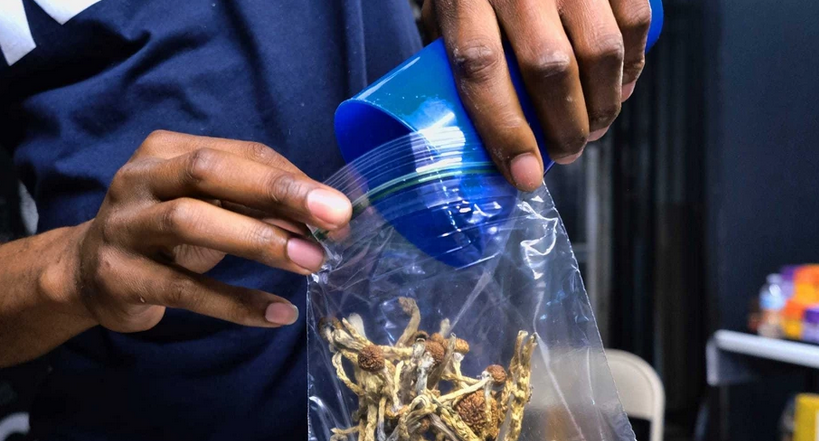 When choosing the right dispensary to buy your LSD, it is essential to consider the type of product you wish to buy. Users of psychedelics have a unique taste for the type of trip they want and will choose the hallucinogen that they feel suits their needs. Therefore, it is essential to ensure that the dispensary offers the psychedelic that you love to use. Finding a psychedelic dispensary that offers a range of products is an added advantage because you will try new stuff and have a fantastic experience trying out different trips. Therefore, it is essential to compare different dispensaries to find the suitable one that sells the psychedelics you love.
When choosing the right dispensary to buy your LSD, it is essential to consider the type of product you wish to buy. Users of psychedelics have a unique taste for the type of trip they want and will choose the hallucinogen that they feel suits their needs. Therefore, it is essential to ensure that the dispensary offers the psychedelic that you love to use. Finding a psychedelic dispensary that offers a range of products is an added advantage because you will try new stuff and have a fantastic experience trying out different trips. Therefore, it is essential to compare different dispensaries to find the suitable one that sells the psychedelics you love.
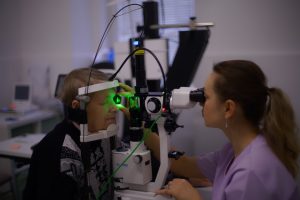 When choosing a professional eye doctor, one of the crucial tips you need to consider in this process is getting referrals. You can start with a referral list from your primary care doctor or other friends and family members that you trust.
When choosing a professional eye doctor, one of the crucial tips you need to consider in this process is getting referrals. You can start with a referral list from your primary care doctor or other friends and family members that you trust.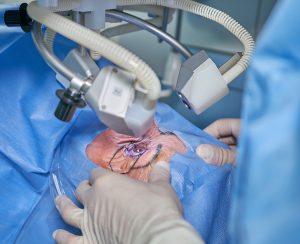 It is recommended that you choose an ophthalmologist with whom you are comfortable taking and sharing your health needs. In other words, working with a professional ophthalmologist who supports your information needs can be easy to solve your eye issue. Therefore, before making this decision, ensure you interview the given surgeon and hire one with excellent communication skills.
It is recommended that you choose an ophthalmologist with whom you are comfortable taking and sharing your health needs. In other words, working with a professional ophthalmologist who supports your information needs can be easy to solve your eye issue. Therefore, before making this decision, ensure you interview the given surgeon and hire one with excellent communication skills. Going through what other patients have to say about specific eye surgeons can offer insight into how they provide their practices and services. Depending on your eye problem, it is advisable to consider choosing an experienced surgeon who can solve this issue permanently. That is why it is advisable to consider selecting a top-rated eye surgeon.
Going through what other patients have to say about specific eye surgeons can offer insight into how they provide their practices and services. Depending on your eye problem, it is advisable to consider choosing an experienced surgeon who can solve this issue permanently. That is why it is advisable to consider selecting a top-rated eye surgeon.


 When looking for a rehabilitation center, make sure you limit your searches to those facilities that are insured or licensed. It is one of the vital things you need to do, especially if you choose a rehab facility for the first time.
When looking for a rehabilitation center, make sure you limit your searches to those facilities that are insured or licensed. It is one of the vital things you need to do, especially if you choose a rehab facility for the first time.
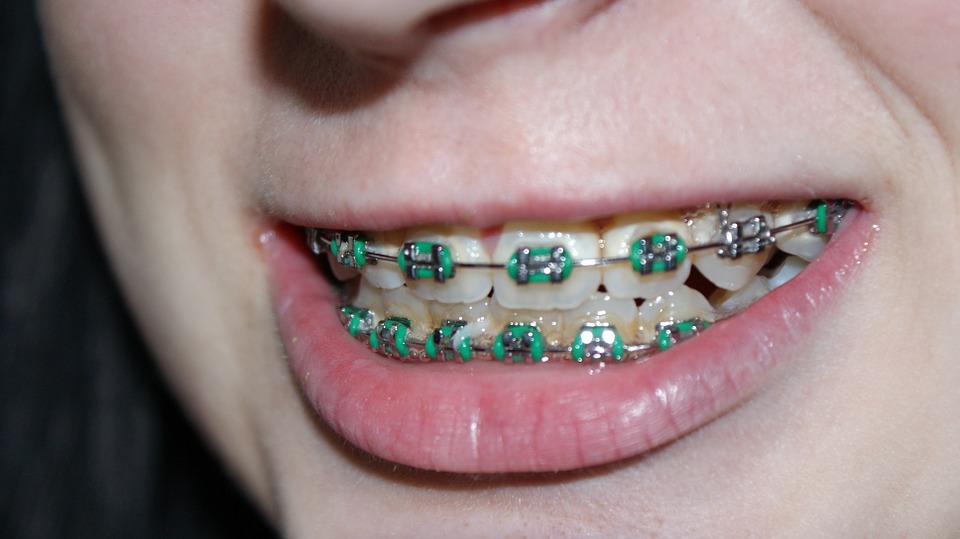
 One of the main reasons why most people consider using dental braces is to prevent gum diseases. Ideally, gum disease is an infection of the soft tissues that surround the teeth. In most cases, you need to understand that there are various causes of gum diseases that these braces can prevent.
One of the main reasons why most people consider using dental braces is to prevent gum diseases. Ideally, gum disease is an infection of the soft tissues that surround the teeth. In most cases, you need to understand that there are various causes of gum diseases that these braces can prevent. As mentioned above, having misaligned teeth can increase gum diseases. It is advisable to understand that the mouth is supposed to have teeth that are evenly spaced. When someone suffers from overlapping or misalignment of teeth, the pressure is not distributed evenly. Therefore, this can damage your teeth and can increase the likelihood of breaking and cracking. Use braces to straighten your teeth to reduce the risk of damaging your teeth.
As mentioned above, having misaligned teeth can increase gum diseases. It is advisable to understand that the mouth is supposed to have teeth that are evenly spaced. When someone suffers from overlapping or misalignment of teeth, the pressure is not distributed evenly. Therefore, this can damage your teeth and can increase the likelihood of breaking and cracking. Use braces to straighten your teeth to reduce the risk of damaging your teeth.

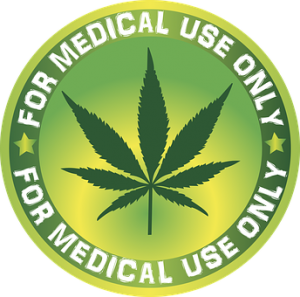



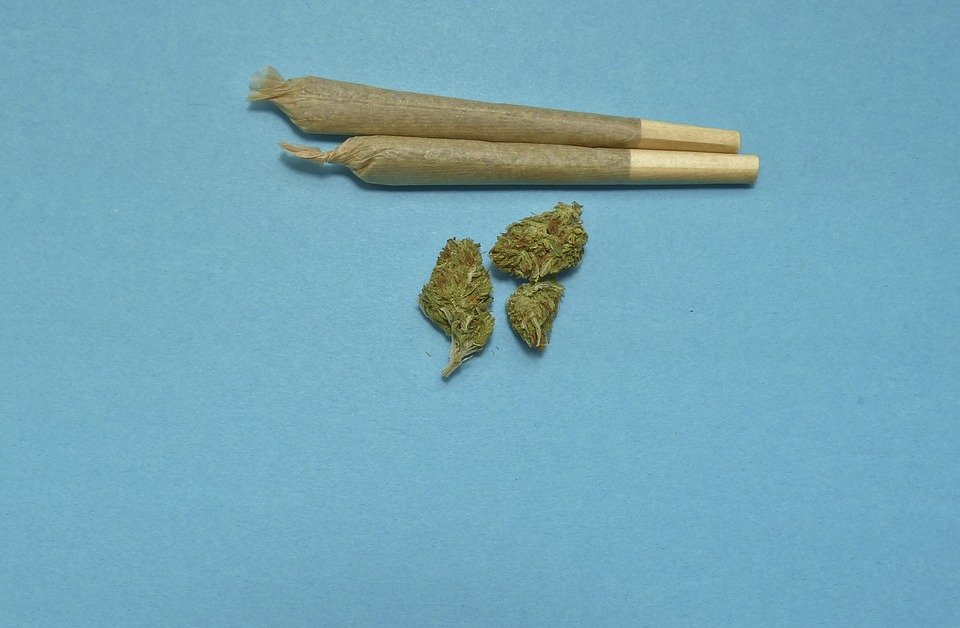
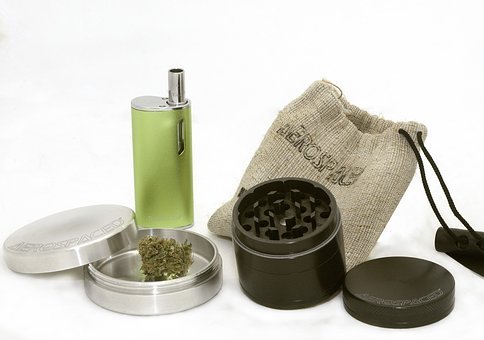

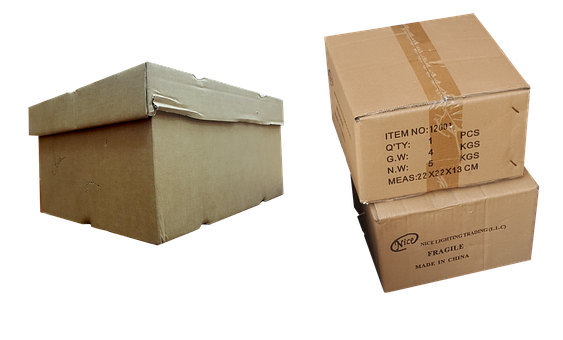


 Online steroid distributors may offer only one brand of anabolic steroids, which makes it easier to choose the online store to purchase steroids. Usually, the best brands are popularly known around steroid-using cliques. You can avail of reviews of brands from manufacturers’ websites, or you can get recommendations from your peers.
Online steroid distributors may offer only one brand of anabolic steroids, which makes it easier to choose the online store to purchase steroids. Usually, the best brands are popularly known around steroid-using cliques. You can avail of reviews of brands from manufacturers’ websites, or you can get recommendations from your peers.

 The inability to stop taking drugs characterize drug addiction. Before the stage of addiction, it is easy for someone to stop using drugs. However, once they become hooked, it becomes impossible to stop.
The inability to stop taking drugs characterize drug addiction. Before the stage of addiction, it is easy for someone to stop using drugs. However, once they become hooked, it becomes impossible to stop.

 shoes for other sports. However,when buying these shoes, see to it that the weight of the shoes does not limit your range of movement or jumping abilities. As much as possible, you should ensure that the shoes you wear while playing are light and comfortable to wear. Getting the right shoes will ensure that your body and shoes feel like one when playing.
shoes for other sports. However,when buying these shoes, see to it that the weight of the shoes does not limit your range of movement or jumping abilities. As much as possible, you should ensure that the shoes you wear while playing are light and comfortable to wear. Getting the right shoes will ensure that your body and shoes feel like one when playing.
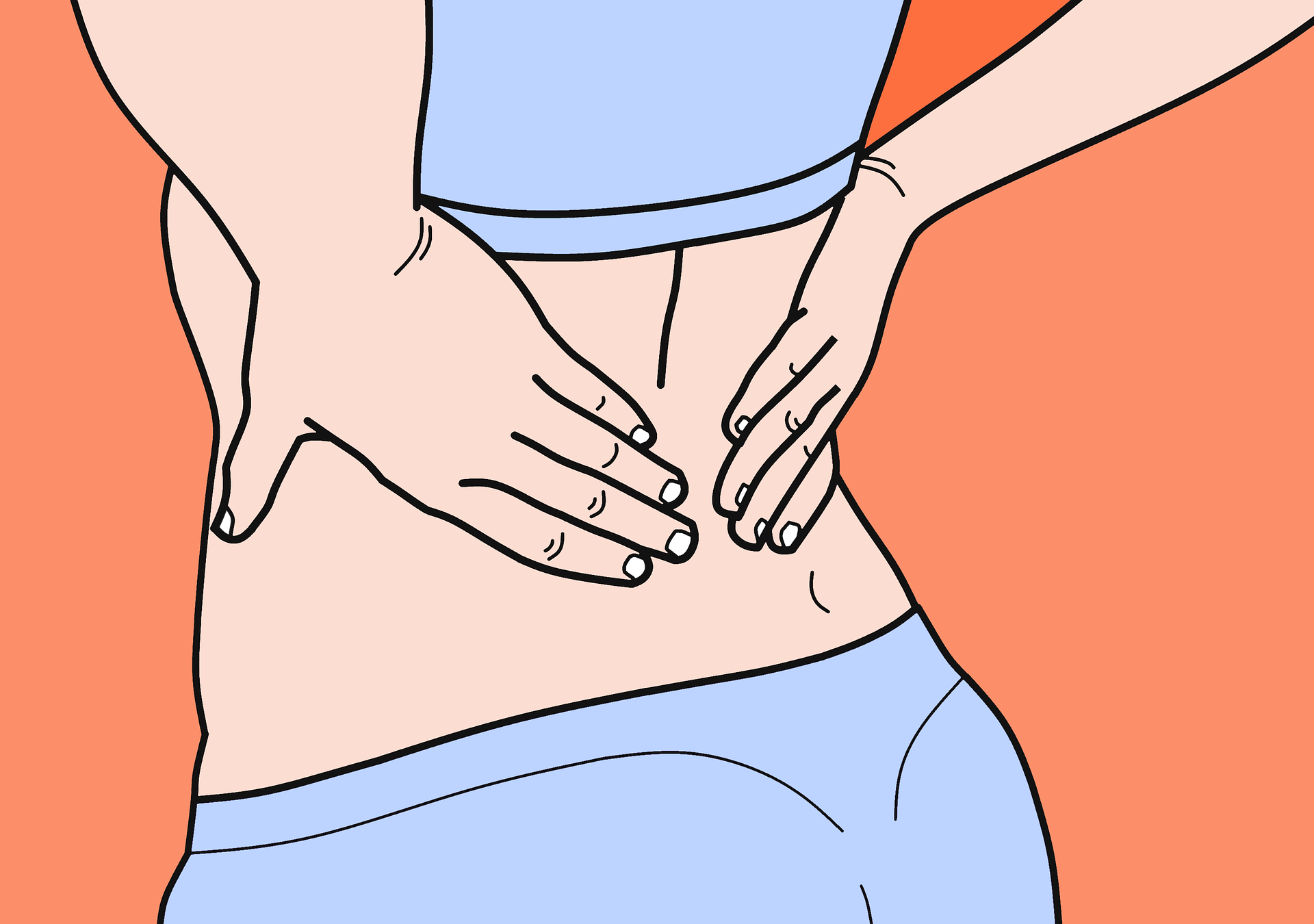
 The first thing that you need to keep in mind if you have back pain is your posture. You need to pay attention to how you place your body. Poor posture can worsen your back pain. That is why you need to remember that you need to sit upright and you shouldn’t slouch. That is because slouching is bad for you, especially if you sit for long periods of time. If you have back pains, slouching can aggravate it.
The first thing that you need to keep in mind if you have back pain is your posture. You need to pay attention to how you place your body. Poor posture can worsen your back pain. That is why you need to remember that you need to sit upright and you shouldn’t slouch. That is because slouching is bad for you, especially if you sit for long periods of time. If you have back pains, slouching can aggravate it.
 If you are looking for a way of stress relief, ping pong is the way to go. The best thing with ping pong is the fact that it allows you to do some social interaction. Taking time from your work and interacting with another person while playing the game is the best way to manage stress.
If you are looking for a way of stress relief, ping pong is the way to go. The best thing with ping pong is the fact that it allows you to do some social interaction. Taking time from your work and interacting with another person while playing the game is the best way to manage stress.

 In most instances, people who are depressed are those people who are never active. They spend most of their time doing nothing or isolating themselves. You need to understand that when people are depressed, the energy levels in their body drops drastically. This makes some people choose to spend most of their time in bed oblivious of the fact that they are worsening the situation. When you sleep, you increase the stress. The best thing to do is to get involved in physical activities.
In most instances, people who are depressed are those people who are never active. They spend most of their time doing nothing or isolating themselves. You need to understand that when people are depressed, the energy levels in their body drops drastically. This makes some people choose to spend most of their time in bed oblivious of the fact that they are worsening the situation. When you sleep, you increase the stress. The best thing to do is to get involved in physical activities. Living styles can also lead to depression. You are probably wondering how? Well, eating fruits and vegetables and ensuring that you drink plenty of water is a perfect way of ensuring that you lead a healthy life. On the other hand, when you eat foods such as meat, you are simply creating problems. Some foods can cause deadly diseases such as cancer, and when you are diagnosed with such diseases, the chances of you getting stressed are very high.
Living styles can also lead to depression. You are probably wondering how? Well, eating fruits and vegetables and ensuring that you drink plenty of water is a perfect way of ensuring that you lead a healthy life. On the other hand, when you eat foods such as meat, you are simply creating problems. Some foods can cause deadly diseases such as cancer, and when you are diagnosed with such diseases, the chances of you getting stressed are very high.
 Due to the fact that most people engage in tiresome and strenuous physical activities, the posture ends up suffering the most. Thanks to yoga and its endless benefits, you can rest assured that your posture will become more presentable. When walking or sitting down, your posture is largely affected. It gets even worse if your job requires you to assume the same posture all through. It would be worse if there wasn’t any kind of therapy for this kind of problem.
Due to the fact that most people engage in tiresome and strenuous physical activities, the posture ends up suffering the most. Thanks to yoga and its endless benefits, you can rest assured that your posture will become more presentable. When walking or sitting down, your posture is largely affected. It gets even worse if your job requires you to assume the same posture all through. It would be worse if there wasn’t any kind of therapy for this kind of problem. Yoga practices help you become more flexible than you ever thought you would be. In fact, you won’t have to feel any kind of pain while you have to do some kind of stretching in daily life. The more you engage yourself in yoga is the more flexible your limbs become. It will definitely be a walk in the park to have to exercise and other vigorous activities that require you to stretch beyond your limits.
Yoga practices help you become more flexible than you ever thought you would be. In fact, you won’t have to feel any kind of pain while you have to do some kind of stretching in daily life. The more you engage yourself in yoga is the more flexible your limbs become. It will definitely be a walk in the park to have to exercise and other vigorous activities that require you to stretch beyond your limits.
